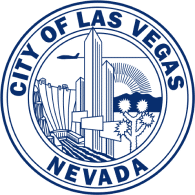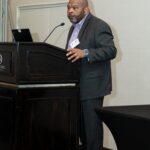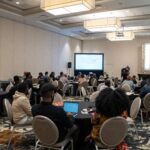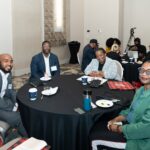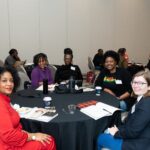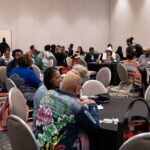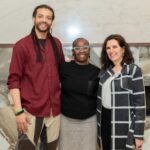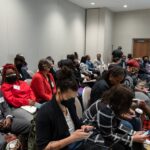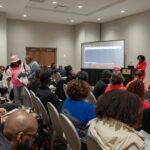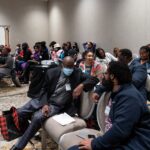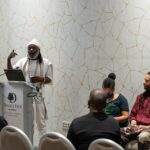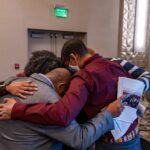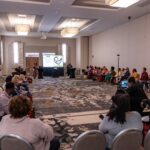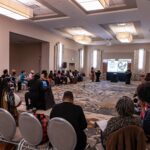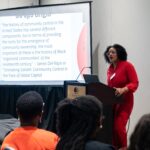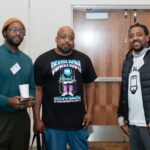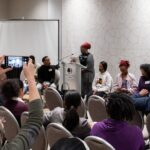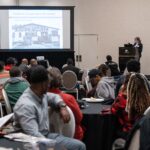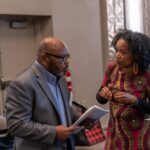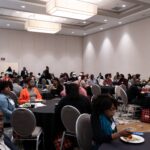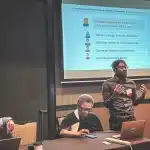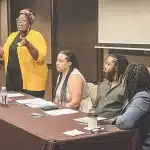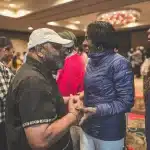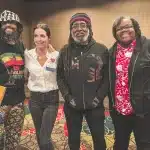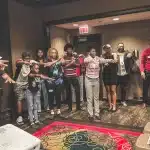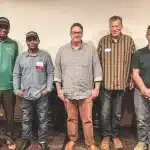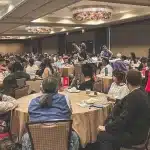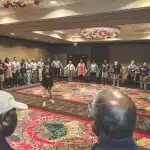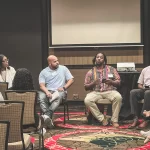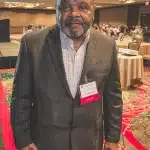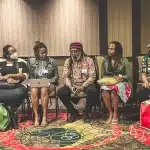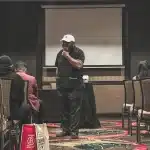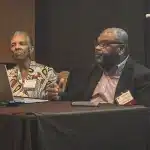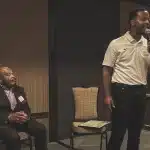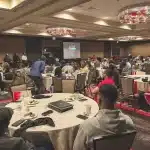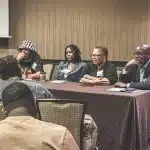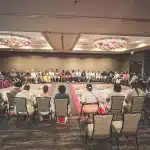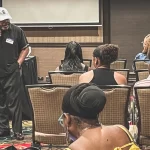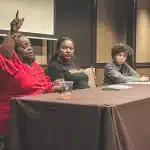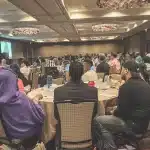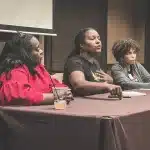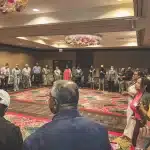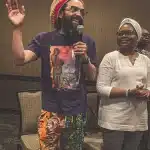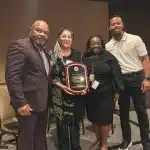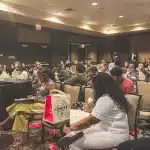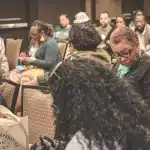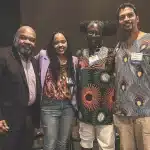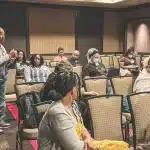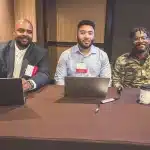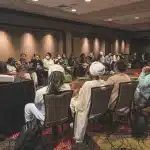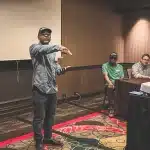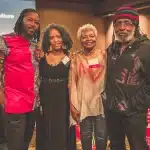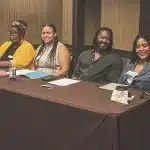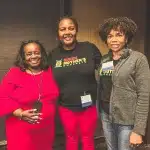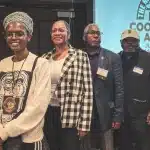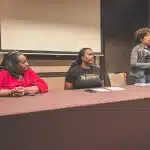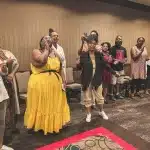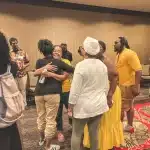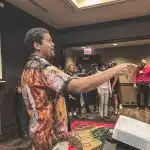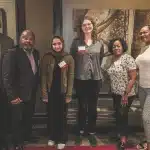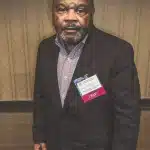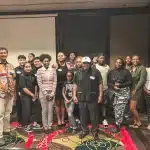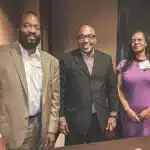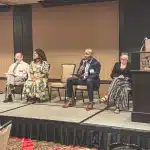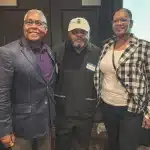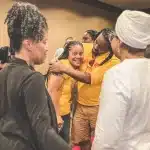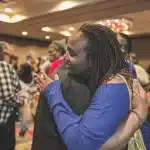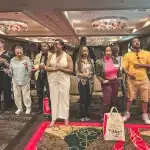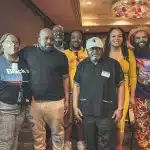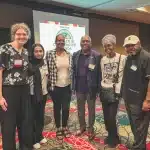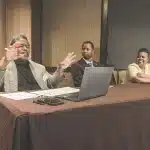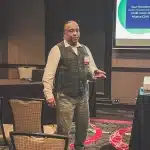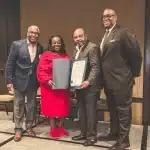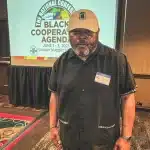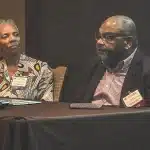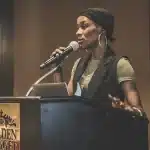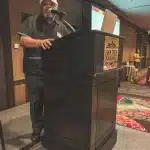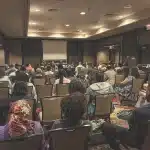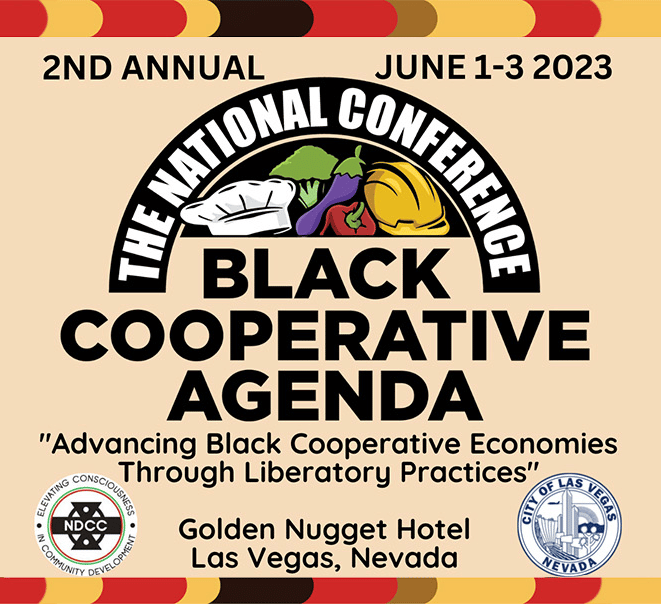
The 2023 National Conference on Black Cooperative Agenda
discussions and opportunities to connect with peers, this conference offers something for every cooperator of social good.
About The National Conference On Black Cooperative Agenda?
The hosts are Network for Developing Conscious Communities and Las Vegas Department of Neighborhood Services.
Organized and curated by Network for Developing Conscious Communities and Las Vegas Department of Neighborhood Services is a three-day conference that brings together Black cooperators and cooperatives united by their passion for growing sustainable cooperative businesses.
Learn from and be inspired by some of the most renowned figures from business and beyond – a blend of content comprised of entrepreneurs, innovators, thinkers, and artists.
The conference focuses on the issues most relevant to today’s Black cooperative businesses, stimulating new thinking and inspiring action.
It provides a unique networking environment to connect with like-minded Black professionals, cooperators and cooperatives
The National Conference on Black Cooperatives Agenda offers a unique three-day learning experience.
The program of content is designed to give cooperative business leaders an edge in today’s fast changing competitive landscape so as to sustain growth and achieve ongoing success.
For senior leaders from across all cooperative industries and across all cooperative sizes.
For leaders and executive teams looking for ideas and inspiration.
For all those who understand the value of knowledge and continuous learning.
What You Will Learn
The conference provides an opportunity to learn from a world class program of business thought leaders and practitioners.
The program has been carefully curated to provide a blend of perspectives on the most important issues facing Black cooperative leaders today.
It offers high level, strategic thinking on the most critical management topics such as leadership, talent, performance and transformation.
Attendees leave with new ideas to help their cooperative organizations grow, and the inspiration to put those ideas into practice.
Why Attend?
We know you need the partnership to continually invest in your ability and resources needed to tackle the complex issues that face our communities. At the National Conference of Black Cooperative Agenda, we’ve got the civic engagement secret sauce to get you re-energized. You’ll benefit from:
Education
Experience more than 20 workshops with actionable takeaways led by cooperative industry experts.
Inspiration
Engage in compelling leadership discussions highlighting best practices in the economic and social impact space.
Connection
Form relationships and engage in deep conversations or the sharing of ideas with fellow changemakers.
Learning
Learn from the brightest minds in the business world and stay up to date on the latest trends in the market. You will leave equipped with the best tools to successfully overcome professional and personal challenges.
Development
Immerse yourself in the inspirational atmosphere of the event and develop new ideas that you can implement within your organization, and in your personal life. Challenge your current business and leadership practices, and open yourself up to new thinking that will help you innovate and address problems in ways you never imagined.
Networking
Connect with more than 200 high-level cooperative professionals. Network for Developing Conscious Communities and Las Vegas Department of Neighborhood Services brings together decision makers, leaders, entrepreneurs, managers of the most important Black cooperatives in United States, all in the same place. Don’t miss the opportunity to grow your network of contacts and expand your business.
Pricing
GENERAL REGISTRATION
March 14- May 15
$300
Special Promotions
GROUP RATE
Have colleagues who also want to attend? Groups of three or more get:
15% discount
STUDENT/INTERN RATE
Are you still in school, or an intern interested in cooperatives? Join us either for only:
$125
Register today and don’t miss any details about National Conference on Black Cooperative Agenda 2023
Sign Up and get information about National Conference on Black Cooperative Agenda 2023
Speakers

Name Surname

Name Surname

Name Surname

Name Surname
Schedule
Wednesday, May 31
5:00 pm-7:30 pm
Registration
06:00 pm – 8:00 pm
Welcome Reception: Classic Jewel
Thursday, June 1
8:00 am – 5:00 pm
Registration
8:30 am – 9:15 am
Continental Breakfast / Networking
9:15 am – 9:30 am
Meditation Rev Bernette Jones, Senior Pastor One God One Thought
Ritual; LaKeisha Wolf, Executive Director Ujamaa Collective
9:30 am – 10:00 am
Conference Opening
Speakers Kathi Thomas Gibson, Executive Director Las Vegas Department of Neighborhood Services
Ron Hantz, Executive Director Network for Developing Conscious Communities
10:00 am – 10:45 am
The National Association Black Cooperators (NABC) is navigating key opportunities to tap into the power of Black cooperative networks, deepen connections across sectors, communities and geographies, expand and share leadership, and identify more ways to work and advocate together.
What is the role of National Association Black Cooperators in the broader cooperative justice movement? How do we ensure a more sustainable future for the next generations? Join us to learn from a panel who represents the movement for cooperative justice.
Moderator Ron Hantz, Executive Director Network for Developing Conscious Communities
Moderator Tamah Chief Solutions Officer at TMH Financial Services LLC
LaKeisha Wolf Executive Director Ujamaa Collective
Keyona Hough, Teacher, Researcher and Defender of Black Liberation
Gary Hampton, Business Growth Development Consultant
10:45 am – 11:00 am
Break
11:00 am – 12:30 pm
Workshops / Session 1 – Day 1
Reparative Cooperative Approach: Blacks Cannabis Movement
One of the main concerns in cannabis is how to build an equitable industry that rights the wrongs of prohibition. In this session, cannabis leaders will discuss how the simple act of doing smart cooperative business can bring about real advancements in equity while driving profits and mobilizing conscious-driven cannabis entrepreneurs.
Moderator: Amber E.Senter, Founder and CEO MAHR House
Frank Hawkins, Owner Nevada Wellness Center
A’Esha Goins, CEO and Owner Black Joy Consultants
Chandler Cooks, Dean Cannabis Business School of Nevada
Building and Strengthening Cooperative Movement Among Black Organizations
In this Black-led cooperative movement, we know that the changes we are needing to effect are not going to be big enough or deep enough in the current capitalist industrial complex. In this session, panelists explore collective ownership, cooperative economics, and community control as necessary for rebuilding and transforming Black political, ethical and financial system to be a part of the solution.
Moderator: Elizabeth Carter, Founder and Managing Director Elizabeth L.Carter LLC
Tameka Henry, Grower Obodo Collective
Gabrielle Chapman Program Manager Shared Capital
Johan Matthews Facilitator Equitable Co-op Ecosystem
12:00 pm – 2:00 pm
Networking Luncheon
Developing Cooperative Grocery Markets Within Underserved Neighborhoods
Say you live in a Black neighborhood where residents have poor access to groceries, such as produce, meat, and household necessities. But your community have the liquor stores and the fast-food spots—but no establishment where you can purchase items to prepare a meal or grab an apple. Hear from cooperative grocery practitioners and learn what Black cooperators have done to address food insecurity through the launching of cooperative food markets.
Moderator: Anthony Goodwin Business Innovation Director National Co+op Grocers
Malik Yakini Founder and CEO Detroit Black Community Food Security Network
Amaha Sellassie Board President Gem City Market
Brooke Neubauer CEO and Founder The Just One Project
2:00 pm – 3:30 pm
Workshops/Session 2 – Day 1
Perspectives on Developing Strategies for Financing Cooperatives
Cooperatives require financing in promoting revitalization of local economies through increasing their economic participation of community owned and self-directed projects. How can grassroot economic development be enhanced in rural and urban marginalized communities of color? Learn how we can help to build sustainable cooperative economic growth and self-reliance in communities through reinvesting back in knowledge and resources.
Moderator: Jessica James, Loan Officer Associated Bank
John Holdsclaw President and CEO Rochdale Capital
Ken Evans MBA M.Y.S, Firm
Nic Steele Access Community Development Financial Institution
Propelling Black Political Power
Panelists will share their experiences as to why Blacks need to establish cooperative political power and figure out how they can influence local and national politics. Panelists will further explore the potential and challenges that cooperatives face in advancing empowerment, what the relationship between Black cooperatives and politics look like in the future and lessons learned from political diversity and inclusion?
Moderator: Cynthia Pinchback-Hines Co-op Developer Co-op Cincy
Mona Jenkins Executive Director Queen Mothers Market
Kathi Thomas Gibson, Executive Director Las Vegas Department of Neighborhood Services
Community Development Through Building Cooperatives
By giving local communities direct control over their destiny, whether in agricultural production, health, housing, retail, or energy, cooperatives play a decisive role in the leading the racial equity movement. There are lessons to be learned from successes and failures in community development as well as the specific role of cooperatives in community development based on their identity. What is the role of cooperatives in community development? How are the cooperative cultural values and shared principles attributed to successfully framing new racial equity paradigms?
Moderator: Amaha Sellassie Board President Gem City Market
Shelley Miller Director New Ownership Opportunities ICA
Elizabeth Carter Founder and Managing Director Elizabeth L. Carter LLC
Gary Hampton Business Growth Development Consultant
3:30 p.m. – 5:30 p.m.
Neighborhood Tour Las Vegas Historic Westside
6:00 p.m. – 8:00 p.m.
Reception. TBD
Friday, June 2
8:00 am – 5:00 pm
Registration
8:30 am – 9:15 am
Continental Breakfast / Networking
9:15 am – 9:30 am
Meditation Rev Bernette Jones, Senior Pastor One God One Thought
9:30 am – 10:45 am
General Session.
Reviving Black Cooperative and Solidarity Movement
In recent years, the Black cooperative and solidarity movement has gained momentum, with an increasing number of Black individuals and communities turning to cooperative models to address economic, social, and political issues. These cooperatives take various forms, including worker-owned cooperatives, community land trusts, credit unions, and mutual aid networks.
Despite facing numerous challenges, such as limited access to capital and resources, the Black cooperative and solidarity movement continues to grow and thrive. This session will explore the current state of the movement, including its successes, challenges, and future directions. Speakers will share their experiences and insights into building and sustaining Black cooperatives, as well as the broader implications of this movement for creating a more equitable and just society.
Moderator: Omar Freilla Co-Founder Collective Diaspora
Renee Hatcher Law Professor John Marshall Law School
Stacey Sutton Associate Professor Department Urban Planning and Policy
University Illinois Chicago
10:45 am – 11:00 am
Break
11:00 am – 12:30 pm
Workshops / Session 1 – Day 2
Afrocentric Perspective for Building Community Consciousness
In these unprecedented times of transformation and upheaval, how do we develop and strengthen our grassroots cooperatives to ground and center our authentic power as everything around us change. Many Blacks feel that African American communities resembles more a colony than it does a community. With a decolonizing lens and holistic framework, how do we build authentic connections that narrow the historic economic gap between Black and White communities?
Moderator: LaKeisha Wolf Executive Director Ujamaa Collective
Malik Yakini Founder and CEO Detroit Black Community Food Security Network
Claytee White Inaugural Director Oral History Research UNLV
Johan Matthews Facilitator Equitable Co-op Ecosystem
Organizing a Community Development Credit Union
Credit unions have a mission of people helping people. Credit unions are cooperatives, meaning they are member-owned and operated, and they are a lower cost banking alternative for all. This session is designed to educate people who may want to start a credit union in their community. The audience will learn the following:
- The history of credit unions
- The legal structure of credit unions
- Why credit unions are important to all communities
- How does a modern credit union operate
- Information on how to start a successful credit union including the pros, cons, pitfalls, the process and the requirements
Moderator: Carl Windom Accredited Financial Counselor and Financial Coach
Reparations for Black People
In the recent years, particularly due to the COVID-19 pandemic and the socio-economic disparities exposed in Black communities, Black leaders and organizations have heightened their call for enacted programs of reparation for past wrongs, including for slavery and the standing institutional and structural practices of racism. This session analyze reparations efforts in the United States and how Black Americans can become more involved in local and national issues centered on reparations.
Moderator: Assata Richards, Executive Director Sankofa Research Institute
Erika Washington, Executive Director Make It Work Nevada
Laura Martin Executive Director Progressive Leadership Alliance of Nevada
Ivan Holloway, Executive Director Urban Impact Birmingham Al
12:00 pm – 2:00 pm
Awards Luncheon.
Professor Jessica Gordon Nembhard
Honorable Commissioner William McCurdy, Clark County Nevada
Kathi Thomas Gibson, Executive Director Las Vegas Department of Neighborhood Services
Ron Hantz, Executive Director Network for Developing Conscious Communities
2:00 pm – 3:30 pm
Workshops/Session 2 – Day 2
Black Women Role In Cooperative Liberation Movement
In this session, panelists will examine the roles of Black women in the cooperative movement, their history, their stories of resistance and resilience. Panel will discuss the ways that past race and gender affects the present and how the phenomenal work of Black women such as Eller Jo Baker, Fannie Lou Hammer and Dr. Jessica Gordon Nembhard has become more conscious in creating a better future.
Moderator: Aleta Toure, Founder Parable of the Sower Intentional Community Cooperative,
YahNe Ndgo:
Yehudit Toure: Member Parable of the Sower Intentional Community Cooperative
Linda Leaks: Ella Baker Intentional Community Cooperative
Sacajawea Saki Hall: Black Feminist Cooperation Jackson
Partnering with Philanthropy to Advance Black Cooperative Change in 2023
If you walked out into the community right now, how would community articulate the foundation’s cooperative values? Sometimes we get so caught up in the day-to-day work that it’s hard to find the time to think about how our stated values interact with our practices and procedures. This session will provide the opportunity to consider how philanthropic partners see cooperative values and how those are reflected throughout their work – in grantmaking practice, community connections, and communications with cooperative partners. This session is for any organization staff or board member – values-driven cooperative approaches involve everyone!
Moderator Teia Evans, Director NCBA CLUSA
Chiquita Board, Director Regional Programming Truist Foundation
William Rucker
Caleb Dawkins, Private Banker, JPM Chase
Building Black Consciousness Truberry
Consciousness-raising is a form of activism and can be used as a tool for the liberation of Black people. This practice was also used by labor movement groups and in popular education practitioners like Rev Johnnie Coleman and Rev Iyana Vanzant. Consciousness raising is a way to use our own lives and experiences to connect at a deeper understanding of collective shared issues. In this session participants will partake in consciousness raising discussions to understand how personal history is affected by historic structural oppression and how this personal history can be documented through oral history methodology and lead to collection action and movement building.
Moderator Ron Hantz, Executive Director Network for Developing Conscious Communities
Moderator Rev Bernette Jones, Senior Pastor One God One Thought
6:00 p.m. – 8:00 p.m.
Reception. TBD
Saturday, June 3
8:00 am – 5:00 pm
Registration
8:30 am – 9:15 am
Continental Breakfast / Networking
9:15 am – 9:30 am
Meditation Rev Bernette Jones, Senior Pastor One God One Thought
9:30 am – 10:45 am
General Session.
10:45 am – 11:00 am
Break
11:00 am – 12:30 pm
Workshops / Session 1 – Day 3
Vertical Farming and Related Technologies Transforming Food Deserts Into Food Oasis.
Most urban communities are not “bio productive” meaning they don’t produce anything that others want. These “food deserts” create several health and socio-economic problems that are a result of what the community has access to and education about. One of the new tools being used as mechanism of gentrification by developing high tech farming systems in areas where the population is not educated, trained or sophisticated enough to know what is being done. By setting up “micro” vertical farms and placing them strategically within a few miles of a grocery store, restaurant, food bank or casino we can solve food desserts and introduce a new farm to table market that would compete with and surpass the “organic market”.
Moderator: Alaric Overbey , Green Side Up Vertical Farms, LLC
Lee Harrison, Jr. – Garden On Air LLC.
George Carter – Skout Strategy
Introduction to Employee Ownership
This session will show how a business can assess its readiness — and its gaps in readiness — and how it can put in place operational practices that build capacity for a successful transition that can increase worker productivity, retention, and pride. Businesses thinking about transitioning ownership to their employees should explore the reasons for doing so and basic structures and ways to implement this transition of ownership. Panelist will share the two most common forms of employee ownership, Employee Stock Ownership Plans (ESOPs) and worker cooperatives.
Moderator: Shelley Miller Director New Ownership Opportunities ICA Group
Khaliff Nunnally-Rivera Cooperative Business Developer ICA Group
Julian McKinley, Senior Director Communications DAWI
Esteban Kelly, Executive Director USFWC
Young People and The Future of Cooperatives Truberry
This is a unique opportunity for youth to develop their cooperative leadership skills while learning the purpose, operation, and scope of cooperative businesses.
What Can Youth Expect To Learn?
- Introduction To Black CoopNomics Academy.
- Learn About The History of Cooperatives.
- How To Develop Leadership Skills.
- How To Build Collective and Solidarity Businesses.
Tara Manor, Management Analyst II Department of Youth Development and Social Initiatives
Cheyenne Kyle Obodo Collective
Omar Freilla Co-Founder Collective Diaspora
Ron Hantz, Executive Director Network for Developing Conscious Communities
HBCUs and Cooperative Community Development Heal and Repair Black Communities
Peebles Beach
HBCU law schools have the capacity to lead and champion the sustainment of cooperative economic wealth building opportunities. This panel discusses how HBCU’s law schools can uplift the cooperative ecosystem as a viable solution to repairing, restoring and regenerating the power that once resided as a way of life for the Black community.
Explore how HBCU Law Schools can play a role and be a cooperator among cooperators?
- Engage in entity structure formation through business development
- Advocate the cooperative business model alongside traditional business models
- Champion bringing awareness to the history, legacy and the power of cooperatives both past and present in the Black community.
Co-Moderator Carmen Huertas Noble Senior Associate Dean for Clinical Program
Co-Moderator Gary Hampton Business Growth Development Consultant
Mark Dorosin Florida A&M University College of Law—Associate Professor and Director of Legal Clinics and Field Placements
Ebony Woodruff Attorney Southern University Law Center
Jerome Hughes Assistant Professor, Director University District of Columbia Law School
12:30 pm – 2:00 pm
Closing Ritual LaKeisha Wolf, Executive Director Ujamaa Collective.
Speakers
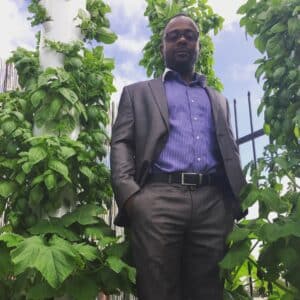
Alaric Overbay,
Co-Founder and Visionary Greensideup Farm
Alaric Overbey is the Co Founder and visionary of Greensideup.farm. His background is in data
center optimization and cloud and back up systems. In 2015 while living in Dallas he experienced his first food desert. From that time he has worked to develop a solution for food security in marginalized communities. He has worked to develop an economic solution by using
vertical farming as the foundation. To date Alaric has pushed the envelope in this space and has been a speaker at the Indoor Ag-Conference twice, Earth Day Texas, and organized the first Food Desert tour. Green Side Up has now taken over a 49,000 Sq. Foot grocery store on
the Historic West Side of Las Vegas. They are installing a full vertical farm in the grocery store
consisting of five Freight Farms, 40 towe gardens, 10 radix and 2 Babylon Farms. Making this the first grocery store of its kind in the world.

Aleta Alston Toure’,
Founder, Parable of The Sower
Aleta Toure’ is a homeschooling mother, liberation strategist and worker-owned cooperative member with Parable of the Sower Intentional Community Cooperative, where they sell mostly community organizing products and services soon to sustain their worker owned housing cooperative and film documentary on “The Black Cooperative Movement.”
She has worked on six Public Broadcast System (PBS) Blackside Documentary Films including the Emmy award winning, “Eyes On The Prize Documentary Film” (WGBH/PBS-TV.) She was an academic acclaimed Ford Fellow in the Massachusetts Institute of Technology (MIT) Urban Studies and Planning Community Fellowship Program.
Aleta is now focusing on spreading a mutual aid cooperative model through her cooperative for black women and children.
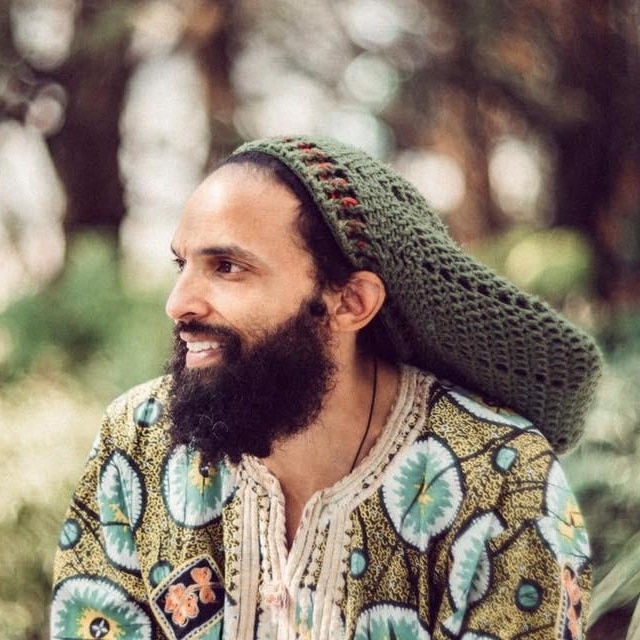
Amaha Sellassie,
Board President, Gem City Market
Amaha Sellassie is a peace builder, social healer, freedom fighter, network weaver, student of cooperation and lover of humanity. He’s an Associate Professor of Sociology and director of Center for Applied Social Issues at Sinclair Community College in Dayton Ohio. Amaha is a practitioner scholar dedicated towards building bridges of trust, healing historical wounds, and harnessing the unique gifts and talents of every human being as we press towards a just and equitable society.
As the former chair of the Dayton Human Relations Council Board and is a Caux Scholar fellow trained in the Swiss Alps in peacebuilding and healing historical wounds. He is co-founder and board chair of the Gem City Market, a community driven effort to address food apartheid through a food coop dedicated to increasing access to fresh fruits and vegetables within west Dayton. He is also a co-founder and co-ed of CO-OP Dayton a coop incubator that is guided by the Mondragon model. Currently he is working towards his Ph. D. in Sociology at the University of Cincinnati with an emphasis on utilizing community based participatory research (CBPR) towards emerging health equity and community transformation.
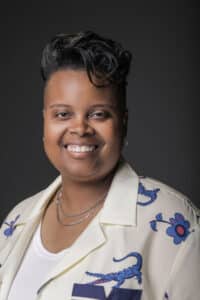
Amber Senter,
Founder and CEO MAHR House
Amber E. Senter is a visionary entrepreneur with over two decades of expertise in marketing and project management. As the Founder and CEO of MAKR House, a storytelling cannabis house of brands, Amber leads fundraising efforts, manages the supply chain, navigates government relations, develops strategic plans, creates innovative products, and executes effective marketing campaigns. Amber’s former experiences include her work as Chief Operations Officer of an Oakland dispensary, where she was responsible for creating and implementing procedures that improved sales and increased profitability. During her tenure, she obtained Oakland’s first onsite consumption permit.
Amber’s unwavering commitment to serve did not end with her time in the US Coast Guard. In addition to her thriving business ventures, she is the Co-Founder, Chair of the Board, and Executive Director of Supernova Women, an organization formed in 2015 dedicated to empowering people of color to become self-sufficient shareholders in the cannabis industry.
Through her work with Supernova Women and MAKR House, Amber is working tirelessly to address the harm inflicted on Black and Brown communities by the failed War on Drugs and to lower barriers of entry for these communities in the legal cannabis market. With initiatives such as the creation of the first social equity program in Oakland and the country’s first social equity workforce development program for cannabis, Amber is a driving force for positive change in the industry. Additionally, MAKR House’s EquityWorks! Incubator serves as a model for the future, offering the first shared social equity cannabis manufacturing facility in the country that helps to break down barriers and level the playing field.
Amber is a sought-after leader in the growing cannabis industry, recognized for her trusted voice and extensive knowledge of the medical and adult-use base. She serves as a mentor and coach to new entrepreneurs in the field, inspiring them with her passion and drive.
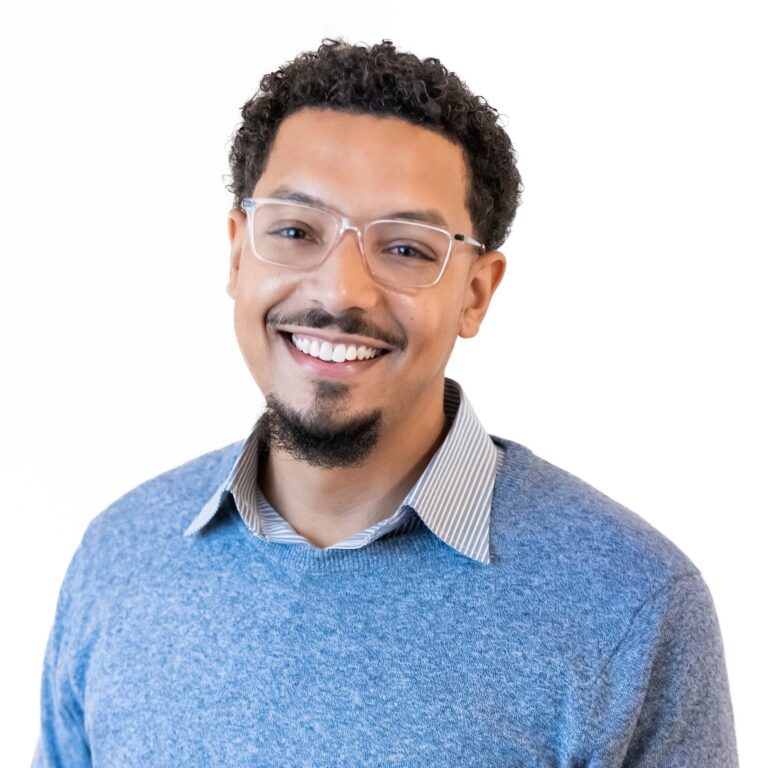
Anthony Goodwin,
Business Innovation Director National Co+op Grocers
Anthony Goodwin is the Business Innovation Director for National Co+op Grocers. He has over 17 years of grocery industry experience across various sectors including national chains, non-profits, and cooperatives. As a grocer, he has worked for Meijer, Lucky’s Market, ProMedica Health System, and National Co-op Grocers. His passion is improving food access in disinvested communities. In his current role at NCG—Anthony leads the Development Cooperative which is focused on developing a cooperative food solution to address low-income, low-access (LILA) communities. In 2021 he received a prestigious 20 Under 40 Award—showcasing dynamic leaders from Northwest Ohio and Southeast Michigan who have distinguished themselves in their careers and in the community. Anthony has a Bachelor of Science degree and Master of Business Administration degree from The University of Toledo and is currently pursuing a Ph.D. in Public Health with a concentration on food justice and health equity.
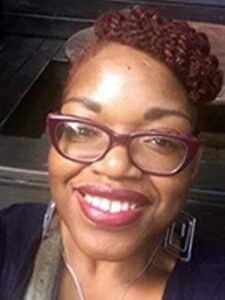
Assata Richards,
Founding Director of the Sankofa Research Institute
Assata Richards is a native of Houston, Texas and received much of her education in County Line, which is a small close-knit community in East Texas. After receiving a bachelor’s degree from the University of Houston, she earned her Master’s and PH. D form Pennsylvania State University in Sociology with a concentration o political and community participation, research methods and mass incarceration. After serving as a professor at the University of Pittsburgh, she returned to her community in Houston, Texas, to work with Project Row Houses, a nonprofit arts organization established by African American artists and community activists in Houston’s Third Ward. She is an Adjunct Professor in the department of sociology at the University of Houston and most recently Assata is the founding director of the Sankofa Research Institute, a community-based nonprofit with the mission to create knowledge to build community.
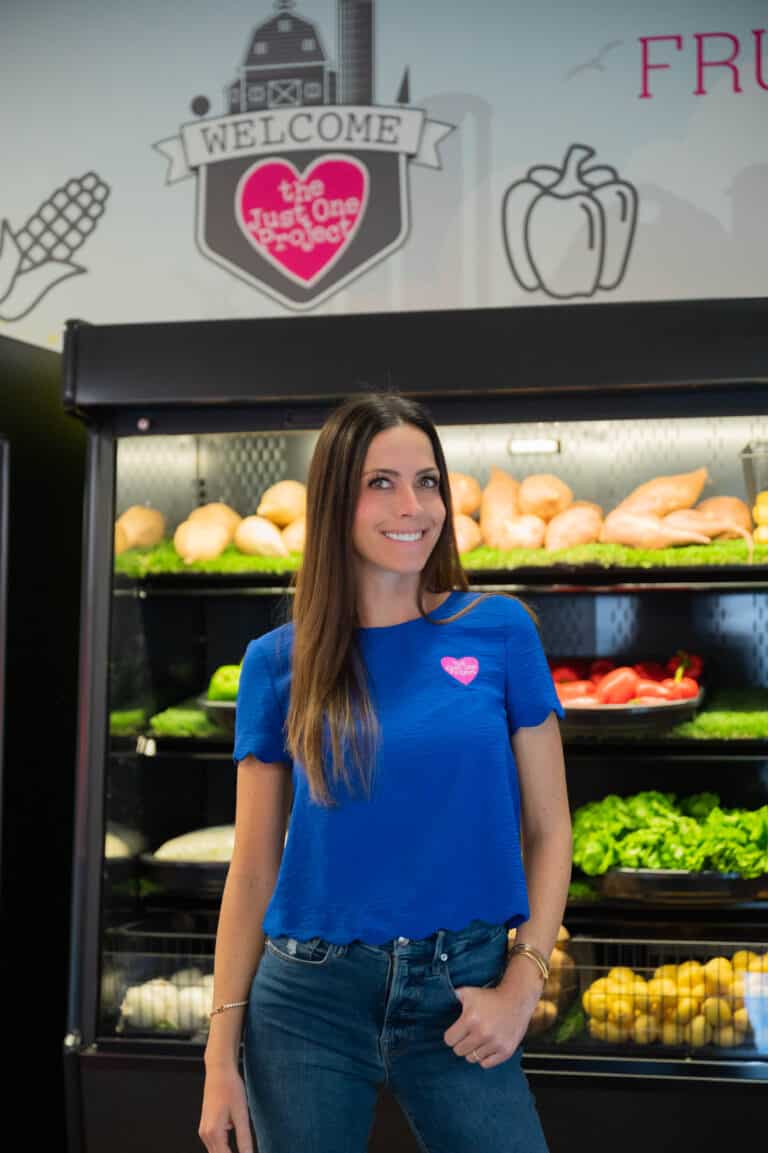
Brooke Neubauer,
CEO and Founder The Just One Project
Brooke Neubauer, CEO and founder of The Just One Project, is a life-long Las Vegan, wife, mother, business owner, and advocate. In 2009, Brooke was introduced to giving back and making a difference through a friend. That holiday season they adopted a child to give gifts for Christmas. The impact it made touched her heart and she was changed forever. Brooke believes that it takes just one person to make a difference and she wanted to inspire others to join her mission of making an impact in the community and in the lives of others.
Since founding The Just One Project in 2014, it has become one of the fastest-growing nonprofit organizations in southern Nevada because of the support of our community partners and volunteers. The Just One Project’s mission is to connect the community through giving back. Through its mission, The Just One Project successfully connects over 20,000 people every month.
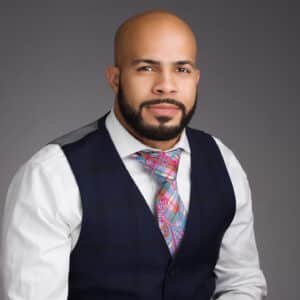
Caleb Dawkins,
Banker, JP Morgan Private Bank
Caleb Dawkins is a Banker in the Las Vegas office of J.P. Morgan Private Bank. He works closely with entertainers, athletes and tech entrepreneurs to advise them on financial strategies designed to grow, manage and preserve their wealth for the generations to come. Caleb brings a strong work ethic, and instills financial literacy so that others Before joining the Private Bank, Caleb was an auditor with Ernst & Young, focused on entertainment firms and retail companies. He plays a leadership role with J.P. Morgan’s BOLD and Advancing Black Pathways, two initiatives that help the black community chart stronger paths toward economic success and empowerment. Recently, he was one of 32 Analysts selected for the firm’s 2020 Wealth Management LEAP Program.
Originally from Compton, California, Caleb was raised in Flint, Michigan, and L Vegas, where he was named the Salutatorian of his graduating class at Mojave High School. Growing up, his father was heavily involved with running a record label, which inspired Caleb to earn a B.S. in Accounting from the University of Southern California, Leventhal School of Accounting, with a minor in Music Recording from the University’s Thornton School of Music. While in school, he interned at Warner/Chappell Music Publishing. He is also a member of the Alpha Phi Alpha Fraternity, Inc.
When not in the office, Caleb enjoys boxing, hiking and aerial trapezing. He taps his fun and creative side to write and produce music with longtime friends from the industry. Caleb is intent on helping others gain a stronghold on their futures and volunteers his time with the alumni chapter of his fraternity to offer mentorship for underserved neighborhoods.
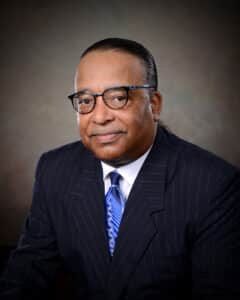
Carl Windom,
Accrediated Financial Counselor and Financial Coach
Mr. Windom is an Accredited Financial Counselor and Financial Coach. He is retired from the National Credit Union Administration, the Regulator and Insurer of all credit unions in the US, Puerto Rico, the Virgin Islands, and Guam, after 27 years of federal government service. Overall, he has over 35 years in the credit union industry and is a subject matter expert in credit unions, personal finance, accounting, auditing, and community development. He serves as a credit union expert consultant assisting credit union organizers in starting credit unions nationwide. He grew up in Harlem, New York, and the boogie-down Bronx, New York. In addition, he is a US Navy Veteran, a college graduate with a BBA degree in accounting from Georgia State University located in Atlanta, GA, and is married with two children. He loves meeting new people, playing and watching basketball, and traveling. But most importantly, he has a passion for helping his community in any way that financially moves people in a positive direction. Spiritually, physically, or otherwise.
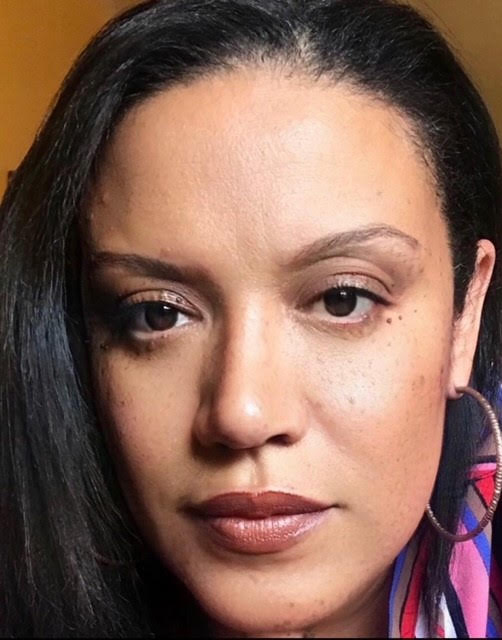
Prof. Carmen Huertas-Noble,
Tenured Professor of Law Senior Associate Dean for Clinical Programs CUNY Law
Professor Carmen Huertas-Noble is a Tenured Full Professor of Law and Senior Associate Dean for Clinical Programs at CUNY Law. She is the founding director of the Community & Economic Development Clinic (CEDC). CUNY Law School’s Clinical Program ranks first in the nation and CUNY Law is consistently ranked as one of the top U.S. public service law schools. Professor Huertas-Noble earned her J.D. from Fordham University Law School, where she was a Stein Scholar in Public Interest Law and Ethics.
Prior to joining the CUNY faculty, Professor Huertas-Noble was an Adjunct Professor at Fordham Law School where she supervised students in its CED Clinic and worked with nonprofits creating immigrant-led worker-owned cooperatives providing child care and house cleaning services. She also served as a senior staff attorney in the Community Development Project (CDP) of the Urban Justice Center, where she counseled cooperatives in navigating their legal entity formation options and on creating democratic governance structures. As part of CDP, she worked with ROC-NY in creating COLORS, a worker-owned restaurant in Manhattan.
Since then, Professor Huertas-Noble and the CEDC have played a leading role in providing transactional legal and policy support to some of the most innovative and grassroots organizations creating and supporting worker-owned cooperatives, including co-founding and incorporating 1 Worker 1 Vote, a movement-building non-profit, the American Sustainable Business Council’s Ownership for All Campaign, The Coalition to Transform Interfaith, Green Worker Cooperatives, the New York City Worker-Owned Cooperative Network (NYC NoWC) and the Network for Developing Conscious Communities (NDCC). In addition, CEDC was instrumental in securing financial investment from the New York City Council in 2015 for the Worker Cooperative Budget Initiative that developed a city-wide ecosystem to grow and support the worker cooperative movement and has grown substantially since 2015. NYC’s investment in the Initiative represents the largest, formal US city investment in worker cooperatives in North America.
Professor Huertas-Noble’s nationally and internationally recognized research and scholarship also focuses on promoting worker-owned cooperatives. Her scholarship emphasizes the role of lawyer in creating meaningful, client participatory decision-making processes as part of the lawyer’s counseling process and in support of client-centered lawyering on behalf of cooperatives.

Cheyenne Kyle,
Urban Farmer, Historic Westside, Las Vegas, Nevada
Growing up cooking in her grandmother’s kitchens Cheyenne soon realized that food was her
passion and wanted to pursue it. After graduating with a degree in Culinary Arts, Kyle has held
senior positions ranging from healthcare to fine dining, resulting in over 10 years of experience
in the field. Kyle has also been devoted to food justice work and activism within Southern Nevada participating as a member of the Southern Nevada Food Council and consulting on municipal food sovereignty projects . Kyle has developed food justice programs such as
teaching cooking classes, preparing large community meals, stewarding a 5-acre community garden, and operating Southern Nevada’s first mobile farmer’s market. Working alongside other local organizations Cheyenne has led a live cooking show focused on food justice and education. Currently, Cheyenne is focusing on developing programs that will increase food security in marginalized communities including building an urban farm within the Historic
Westside.
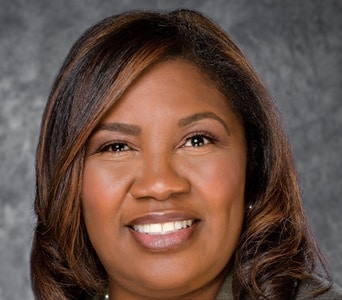
Chiquita Board,
Vice President Director of Regional Programming Truist Foundation
Chiquita Board joined Truist Financial Corporation’s Foundation in 2019 following a career in nonprofit management for twenty years. She serves as the Vice President, Director of Regional Programming for MD, NC, TN, TX, VA, and WA. She is a thought leader to multiple regions uplifting our purpose, to inspire and build better communities. The Foundation’s two guiding strategic pillars are Building Career Pathways to Economic Mobility and Strengthening Small Businesses. In 2005, she transitioned to
becoming a National Capacity-Building Consultant with National Center for Training Support and Technical Assistance|PROCEED, Inc. Consulting allowed her to present on a variety of topics with her extensive experiences (i.e., Fund and Resource Development, Board Development, Program Management, Leadership, and serve as Coach for a Milwaukee Leadership Fellows program for SGLAA Males for a 5-year tenure). She has received a number of awards for her passion around working with nonprofit leaders, boards, low-to moderate-income families, youth, families, individuals, LGBTQ, and peers locally and regionally. Most recently, she received a notable mention as one of the Top 50 Women to Admire in the Mountain region. Her purpose statement is to be positively engaged in our remarkable
philanthropic work throughout our footprint. This fuels her energy, sparks her creativity, and cultivates her aspirations to learn, thrive, and grow as a valued teammate. Married to Michael for 27.5 years. Five 5 adult children who live in CA, TX, GA, Las Vegas, and 7 BEAUTIFUL grands. In 2023, she’s set to travel
abroad. In her spare time, she’s a Stitcher.
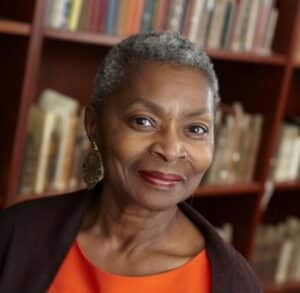
Claytee D. White,
Director, Oral History Research Center at UNLV Libraries
Claytee D. White is the inaugural director of the Oral History Research Center at UNLV Libraries. In this position, she collects the history of Las Vegas and the surrounding area by gathering memories of events and experiences from long-time residents. A few of many significant projects include the Las Vegas African American Experience, 1 October, Jewish Heritage, Building Las Vegas, Latinx Voices, and the Asian American Pacific Islander oral history projects.
Claytee received her Master of Arts degree in history from the University of Nevada Las Vegas and engaged in additional graduate work at the College of William and Mary. She has written several book chapters, journal articles, and presented oral history papers at national conferences from Atlanta to Maui. Her first book proposal has just been accepted by the University of Nevada Press.
A native of Ahoskie, North Carolina, Claytee serves on advisory boards of BlackPast.Org, the MOB Museum, Women of Diversity, and Black Mountain Institute.
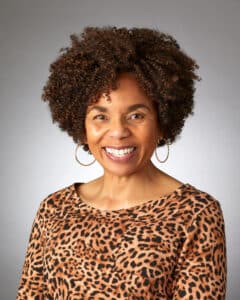
Cynthia Pinchback Hines,
Racial Justice Educator and Co-Op Developer Co-op Cincy
Cynthia Pinchback-Hines is racial justice educator and co-op developer for Co-op Cincy, where she serves on the Board and leads Power in Numbers: Black Co-op U, a 14-week intensive training designed to help Black-led businesses work through the process of launching a cooperative.
Cynthia holds a PhD. in Educational Leadership for Higher Education. Her professional experience spans 4 decades in educational and corporate settings, where she has led major transformative organizational efforts. A native of Danville, Virginia, Cynthia believes she has been called to serve, whether as community activist, community organizer, or educator. The Cincinnati Enquirer named her one of the ten most influential educators in Greater Cincinnati and presented her with a Diversity Leadership Award for her achievements at Cognis Corporation.
Cynthia resides in West Chester, OH with her husband Gary.
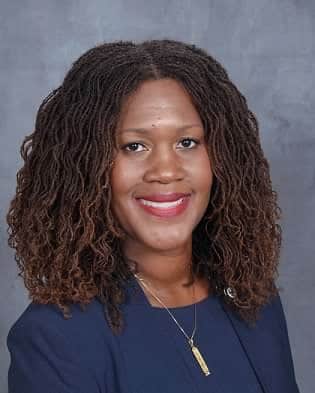
Ebony Woodruff,
Lawyer, Southern University Law
Ebony is a first-generation attorney. She has more than a decade of experience as a legal entrepreneur and practicing attorney. She earned a Master of Laws in Agricultural and Food Law from the University of Arkansas School of Law, a Juris Doctor from the
Southern University Law Center, and a Bachelor of Science in Business Administration from Louisiana State University. Ebony is a former Louisiana State Representative.
Currently, she is a Land Retention and Advocacy Attorney with the Federation of Southern
Cooperatives/ Land Assistance Fund; and serves on the New Orleans Food Policy Action Council Board of Directors. Ebony is also an Aspen Institute 2023 Food Leaders Fellow.
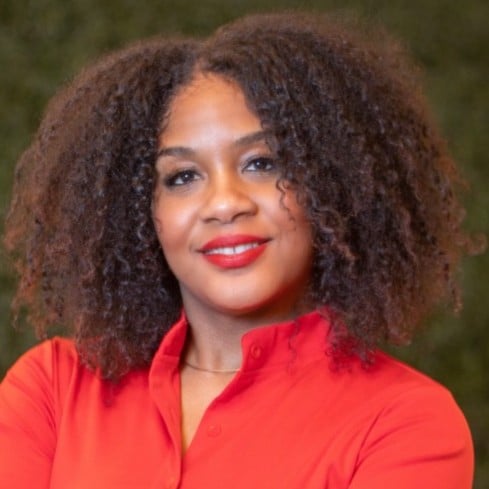
Elizabeth L Carter,
Founder & Managing Attorney, Elizabeth L. Carter, LLC
Elizabeth is an investment crowdfunding attorney who represents investment companies, small businesses, nonprofits, cooperatives, and other social enterprises with the legal strategy and compliance of raising capital from their community and other investors. Her most recent work includes assisting a driver-owned ride-share cooperative with the legal compliance of its $2.5 million debt crowdfunding offer through Regulation Crowdfunding (Reg CF). Similarly, she assisted a number of cooperatives with their governing documents (by-laws, operating agreements, articles of incorporation) in order to prepare them for an upcoming capital raise from non-member investors. She also assisted a number of investment funds with the securities legal strategy and compliance of a SEC Rule 506(c) crowdfunding offer, including a cooperatively owned investment fund that offered $2 million in equity to accredited investors, as well as a community development financial institution that offered $1 million in slow equity to mission-aligned accredited investors. Elizabeth is passionate about the political economy, solidarity economy, restorative economics, and community development.

Erika Washington,
Executive Director, Make It Work Nevada
Erika F. Washington moved to the Las Vegas valley nearly 15 years ago and instantly integrated herself into the community. Working for many years as a journalist for the only African American newspaper in the state of Nevada, she came to appreciate and understand the inner workings of Nevada politics.
Currently as the Executive Director for the Make It Work Nevada and Make It Work Nevada Education Fund, she is striving to redefine the traditional idea of what organizing looks like. Since 2015 she has sought out to refocus old strategy ideas and adjust the view through both a gender and cultural lens. The organization is successfully organizing Black women and their families around important economic, racial, and environmental issues through a reproductive justice lens that will have a long-lasting effect on the political and cultural landscape of Nevada.
She believes and has proven that by amplifying the narrative of folks living at the margins and building infrastructure to expand opportunities and engagement that can build bridges across groups for the long term.
She is currently Board Chair of the Family Values @ Work Board of Directors; 6-term appointed board member for the city of Las Vegas Community Development Recommending Board; Board Chair for Michigan based Mothering Justice; Board member 9to5, National Association of Working Women; state appointed to the newly established Nevada state Maternal Mortality Review Committee, and the Medicaid Managed Care Reinvestment Advisory Committee and former board member for the Progressive Leadership Alliance of Nevada; and former 1st Vice Chair of the Clark County Democratic Party.
When she is not working to build a better community, she devotes her time to her almost grown daughters, her super supportive husband, drinking tea and discovering good books.
Follow: @VegasJournalist on Twitter.
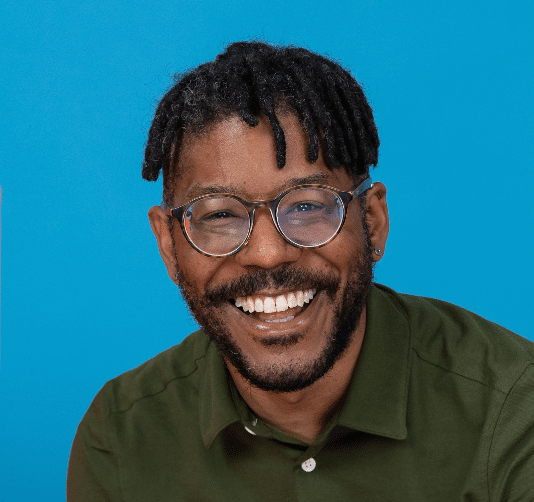
Esteban Kelly,
Executive Director, US Federation Workers Cooperatives
Esteban Kelly works to expand economic democracy through forms of multi-racial solidarity and collective ownership. He is the Executive Director for the US Federation of Worker Cooperatives (USFWC), founding President of the freelancer co-op Guilded, and a worker-owner and co-founder of AORTA (Anti-Oppression Resource & Training Alliance)– a worker co-op that has built capacity for hundreds of social justice projects through intersectional training and consulting. He foregrounds political education, systemic thinking, and abolitionist principles into visionary organizing. He was a co-founder and first board President of the cross-sector Philadelphia Area Cooperative Alliance (PACA) and has served on numerous boards including the Democracy At Work Institute, the US Solidarity Economy Network, and the Cooperative Development Foundation. Esteban currently serves on the boards of NCBA–CLUSA, Climate + Community Project, the Platform Co-ops Consortium, and the international worker co-op association known as CICOPA. He advises Making Worlds Bookstore Co-op and the Movement for Black Lives. Esteban is a Ford Global Fellow, A Margaret Burroughs Fellow in the Portal Project/ Social Justice Initiative at UIC, an Executive Fellow at the Institute for the Study of Employee Ownership and Profit Sharing at Rutgers University, and a Fellow in the Equitable Enterprise Initiative at the Institute for the Future.

Frank Hawkins,
Owner, Nevada Wellness Center, Silver Black Attack
Frank Hawkins grew up in an area of the city known as West Las Vegas. When he was a little boy, his goal was to build up his community so it would look like the rest of Las Vegas neighborhoods.
Frank graduated with a degree in Criminal Justice in four years from the University of Nevada Reno, starred on the gridiron where he was a three time All American running back and the third all-time leading rusher in college football history. As the result of his performance on the football field, Frank was drafted by the Oakland Raiders in 1981. Tenacious on and off the field, Frank returned home to Las Vegas to build businesses and to become the first African American ever elected to the Las Vegas City Council in 1991.
Mr. Hawkins has continued to make History in the State of Nevada by being the first to accomplish so many great endeavors. Frank has spent the last 8 years expanding his real-estate and Marijuana (Medical & Recreational) Territory as the First and ONLY 100% Black Owned dispensary in the State of Nevada.
He has grown the first, largest and only 100% Black Owned dispensary (Nevada Wellness Center) located in the City of Las Vegas into the first African American vertically integrated group of marijuana businesses including newly opened dispensary (Nevada Wellness Center West) and a marijuana Cultivation (Silver Black Attack) both located in Clark County Nevada, and soon to open a new Marijuana Consumption lounge.
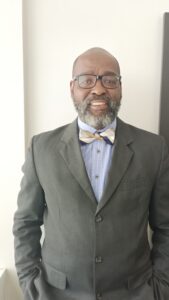
Gary Hampton,
Business Growth Development Consultant
Gary W. Hampton is a Business Growth Development Consultant who helps businesses and organizations to reach operational and capacity goals. Hampton previously served as Deputy Director of Small Business Development for the State of West Virginia and worked for 17 years as an Information Technology professional. After a successful career in IT and strategic development across different industry sectors (Technology, Financial, Government, Private, Non-profit, Retail, Education), Hampton now advises, trains and coaches businesses on strategic development and growth strategies to reach their organizational goals. He is also active in community-based cooperative economic development and a member owner of the Ajani Group Cooperative. Hampton is a passionate community supporter who enjoys coaching up the youth in his community through basketball and technology activities. Hampton received his B.A. from Marshall University in Management Information Systems. Mr. Hampton currently sits on the boards of Create WV, Compensation Committee and Association of Cooperative Educators, Vice Chair.
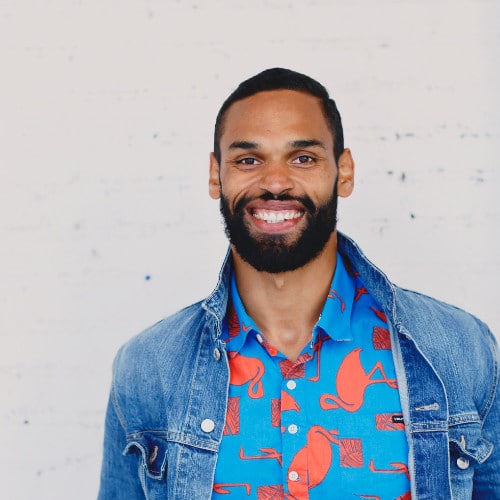
George L. Carter III,
Founder, Skout Strategy
George is a connector. He is a systems thinker who sees projects holistically, bringing together all of the components and people needed to execute. Prior to forming Skout Strategy, George spent 3 years building Sananbio US’s global sales and marketing capacity in the categories of indoor vertical farming and horticultural lighting. George’s time at Sananbio was preceded by 4 years of leading a multi-licensed medicinal cannabis company in California, where he discovered his deep passion and respect for agriculture. Driven by building a more inclusive, equitable and sustainable food system, George leverages his business acumen, technological expertise, and team building to bring projects to life.
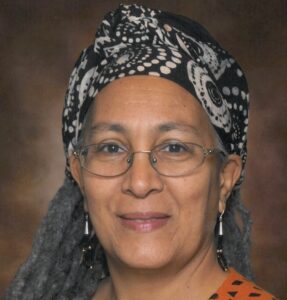
Jessica Gordon Nembrad,
Author
Author of Collective Courage: A History of African American Cooperative Economic Thought and Practice (2014), and 2016 inductee into the U.S. Cooperative Hall of Fame. Dr. Gordon-Nembhard is a political economist specializing in cooperative economics, community economic development and community-based asset building, racial wealth inequality, solidarity economics, Black Political Economy, and community-based approaches to justice. She is a member of the Cooperative Economics Council of NCBA/CLUSA; the International Co-operative Alliance Committee on Co-operative Research; a Faculty Fellow and Mentor with the Institute for the Study of Employee Ownership and Profit Sharing at Rutgers University School of Management and Labor Relations; and an affiliate scholar with the Centre for the Study of Co-operatives (University of Saskatchewan, Canada). Gordon-Nembhard is also a past board member of the Association of Cooperative Educators; a past fellow with the Center on Race and Wealth at Howard University; and a member and past president of the National Economic Association.
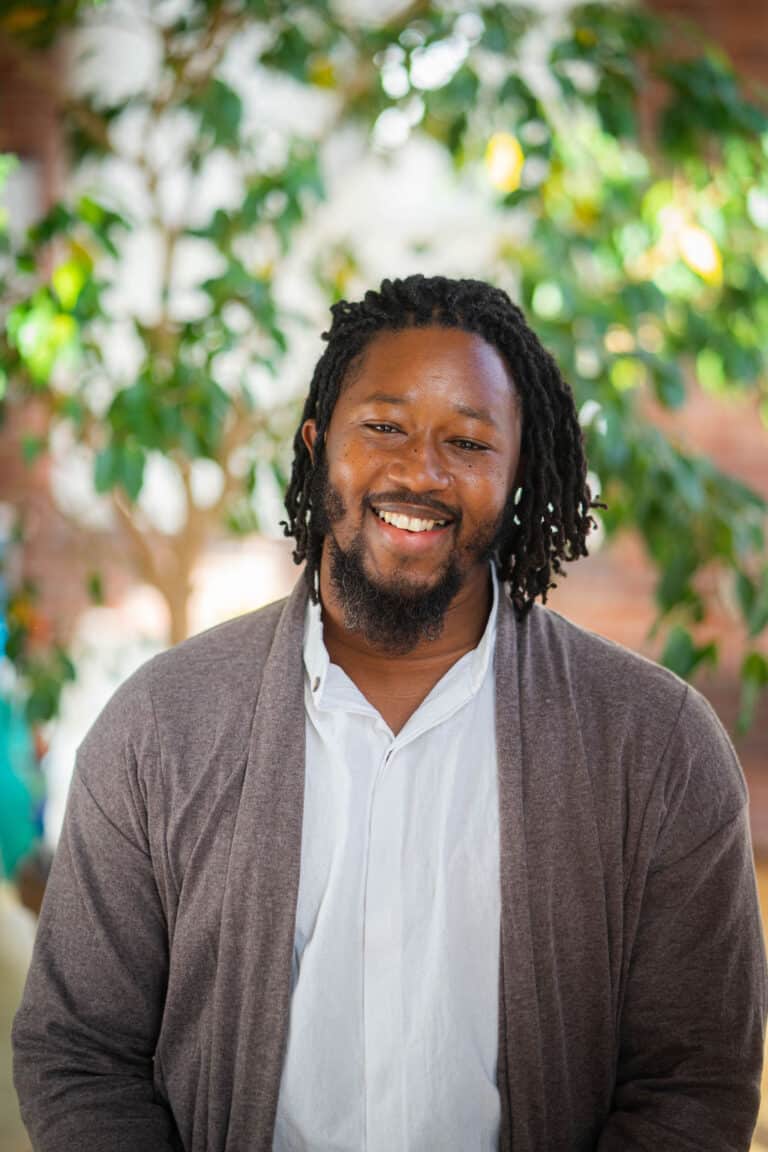
Johan Matthews,
Facilitator, Equitable Co-op Ecosystems
In this role, Johan facilitates the development of equitable co-op ecosystems in emerging communities across the northeast.
He also provides culturally relevant technical assistance to ensure that communities traditionally excluded from economic investment can engage in cooperative enterprise. Johan joins CFNE after over a decade of collaborating with local leaders and institutions to design and implement community-based economic engagement strategies. He holds a B.A. in Philosophy from SUNY at Buffalo, a Certificate of Graduate Study in Nonprofit Leadership and Management from Rockefeller College, as well as an M.S. in Strategic Design and Management from The Parsons School of Design Strategies.
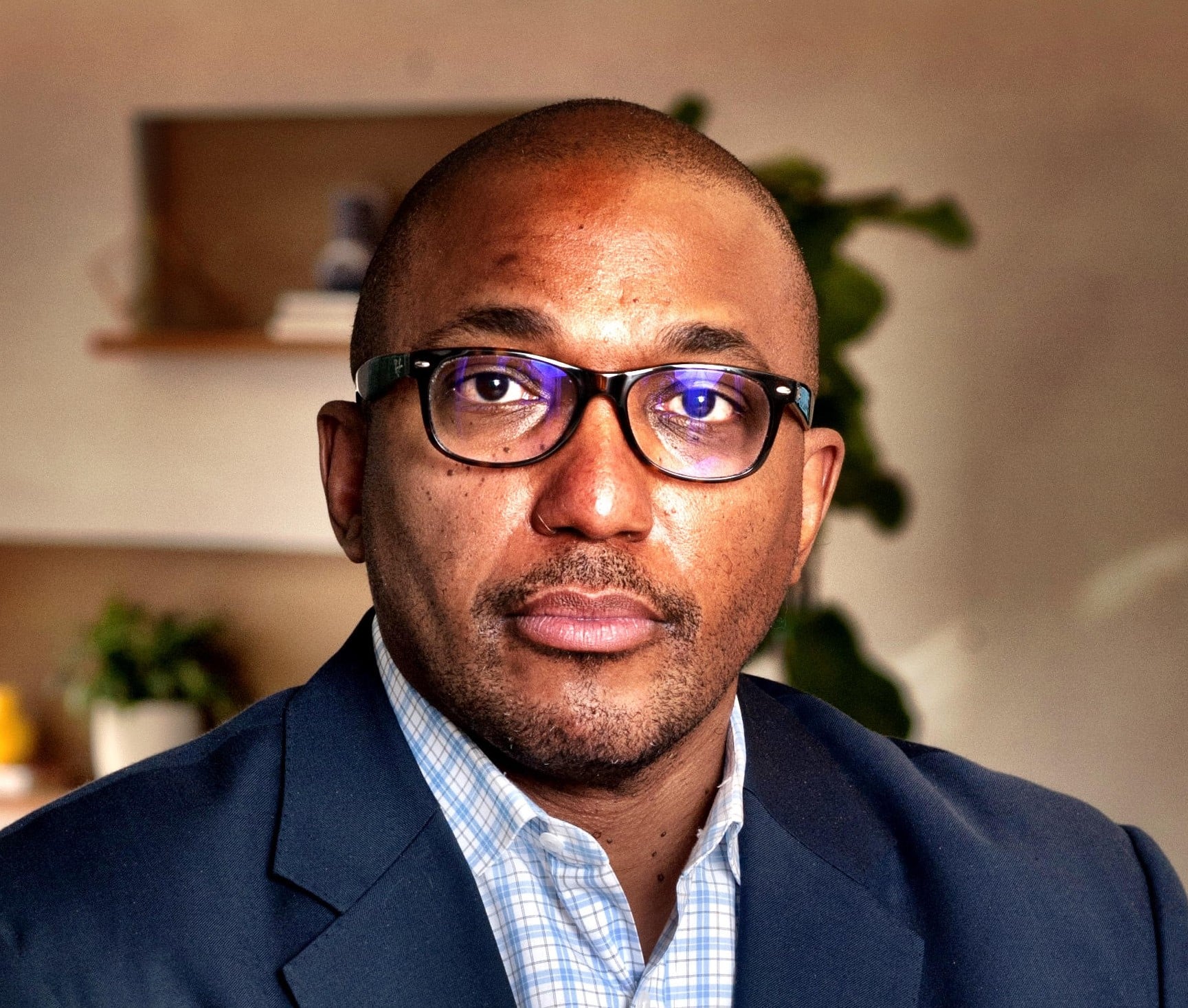
John Holdsclaw IV,
President and CEO, Rochdale Capital
John Holdsclaw IV serves as president and CEO of Rochdale Capital, an emerging national non-profit community development loan fund that promotes community ownership and cooperative principles. In a dual role, John also serves as executive vice president of strategic initiatives at the National Cooperative Bank (NCB), which is the founding and strategic partner of Rochdale Capital.
Mr. Holdsclaw currently serves on numerous boards and holds degrees from NC Agricultural and Technical State University and Southern New Hampshire University, a Stonier Graduate School of Banking Diploma, Wharton Leadership Certificate and Certificate in Diversity and Inclusion from Cornell University. In 2019, John received NCB’s Stanley W. Dreyer Spirit of Cooperation Award. John was named one of ImpactAlpha’s Agents of Impact for 2022, one of twelve who are breaking new ground, forcing hard conversations, and doing the hard work of driving positive social and environmental impact. In addition, John is an active member of Phi Beta Sigma Fraternity, Incorporated.
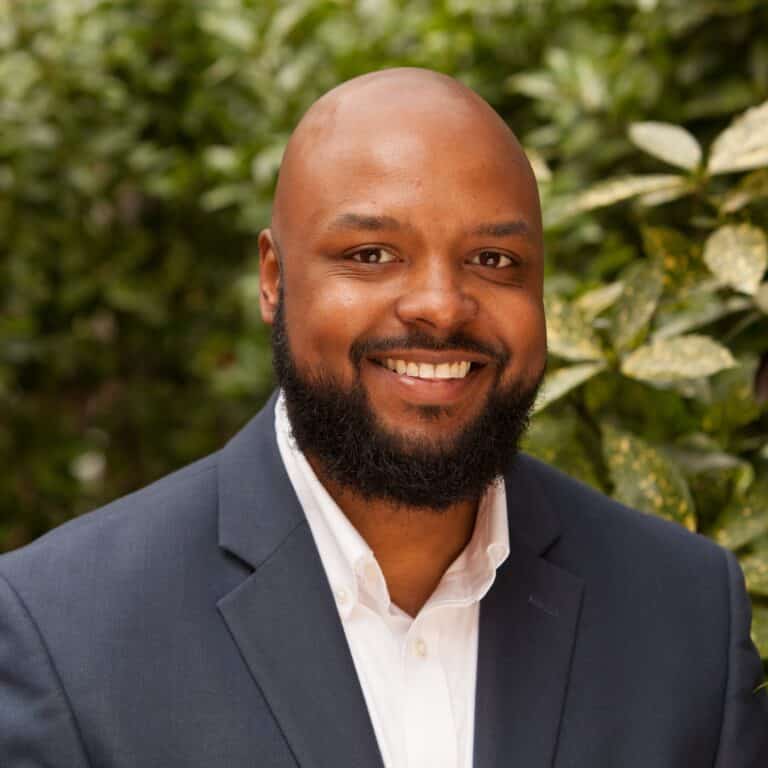
Julian McKinley,
Senior Director Communications, Democracy at Work Institute
Julian S. McKinley leads communications initiatives and serves on the leadership team at the Democracy at Work Institute, supporting DAWI’s work to expand worker ownership to meet the needs of workers locked out of good jobs and business ownership. He is a passionate and mission-driven storyteller with deep roots in community empowerment and economic development, previously leading organizational storytelling and strategic communications campaigns around community- and systems-level economic change. He has trained cooperative developers in the U.S. and Kenya and partners to provide administrative leadership for New York City’s Worker Cooperative Business Development Initiative. Julian is a former news editor, having founded and managed multiple hyperlocal news websites in his home state of Connecticut. Julian is also a certified Master Composter and lives in Queens, New York.

Keyona Hough,
Teacher and Researcher
Keyona Hough is a teacher, researcher, and defender of Black liberation and sovereignty at all costs. Currently, she holds the position of Food Susu Organizer for a powerful Black owned organization known as Black Yield Institute. Keyona is the President of the Cherry Hill Food Cooperative which is one of the solutions to food apartheid within Baltimore City. She understands the dire need for our communities to learn how food affects our psyches, attitudes, and behaviors. She graduated from Morgan State University with a bachelor’s degree in Family & Consumer Sciences and has over 20 years of experience in maternal and infant health, community organizing and advocacy, and resource development. Keyona continues the fight for Black people to thrive within systems they own and no longer fight for a seat at other people’s table.
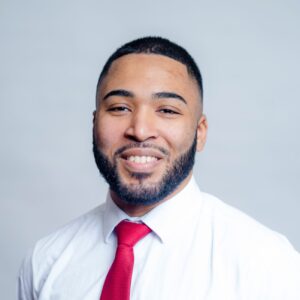
Khalif Nunnally-Rivera,
Cooperative Business Developer ICA Group
Khalif Nunnally-Rivera is a Cooperative Business Developer at the ICA Group. In this role, he works on a variety of projects including business consulting, financial analysis, market assessments, outreach, and policy research. He joined the organization in May 2022. Born and raised in Springfield, MA, Khalif currently lives and works out of the ICA’s New York City office. Through the ICA, Khalif hopes to reduce wealth inequality, be an advocate for employee ownership, and create new opportunities for people of color and working-class communities. Khalif holds a B.A. in Human Geography and a Master’s of Public Policy and Administration from the University of Massachusetts, Amherst
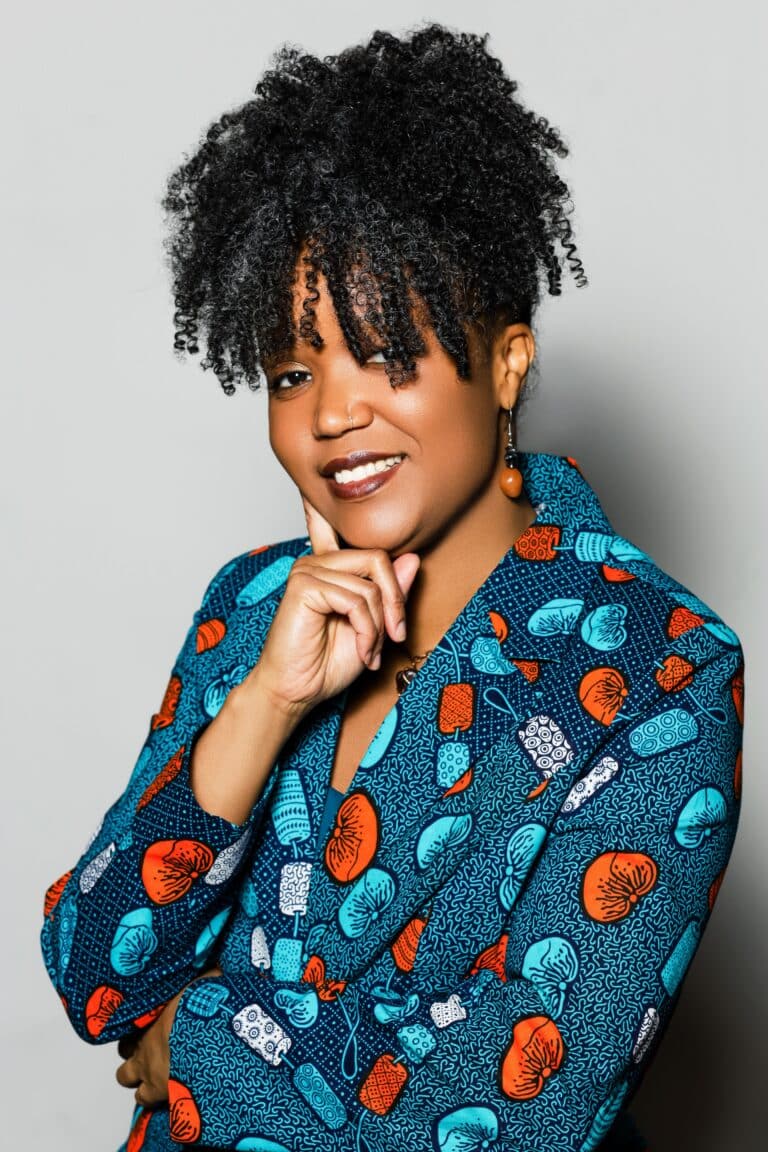
LaKeisha Wolf,
Executive Director, Ujamaa Collective
LaKeisha Wolf, a first-generation Pittsburgher, has developed her roots across the community working at the intersection of arts and culture, social entrepreneurship, and community development and wellness for 20 years. She is a founding member of the Hill District based non-profit Ujamaa Collective, serving as Executive Director since 2013. In this role, Lakeisha focuses on the agency’s business affairs, including the cooperative development of emerging Africana women-owned craft industries, maintaining an artisans’ retail boutique in conjunction with creative community programming. She initiated the organization’s first direct, fair-trade relationship in East Africa.
Lakeisha holds a bachelor’s degree in Communications from Penn State University where she served as Black Caucus President, advocating for educational equity, revising diversity curriculum, and helping to establish the State of Pennsylvania’s first Africana Research Institute at PSU in 2001. She has been immersed in the world of cooperative economics for many years, studying and learning with organizations such as NASCO Institute’s Emerging Cooperative Leaders Program, the Eastern Conference on Workplace Democracy and serving as a panelist for the National Cooperative Business Association.
She is a cultural worker, creative entrepreneur, and teaching artist; founding a micro-enterprise called EnjoyourSelf, creating healing gemstone jewelry and producing E-Ma’s Natural Body and Hair Care line. Lakeisha is known for helping Africana women make healthy, informed choices around beauty product consumption combined with self and environmental awareness.
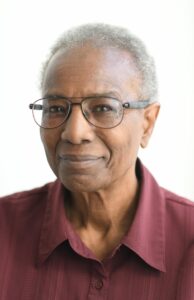
Linda Leeks,
Former Executive Director, Washington Innercity Self Help
Linda Leaks, who helped to form at least 16 affordable housing cooperatives in DC, and the first housing cooperatives in Johannesburg, South Africa, will be inducted into the Cooperative Hall of Fame on Oct. 5, 2023. About 400 families are able to live in DC because of the 7-day a week organizing she did as a housing organizer and later Executive Director of Washington Innercity Self Help. From WISH she helped to save the homes of many people who were being pushed out by developers who literally took apartment buildings that black and brown people had lived in for 30 years by turning off heat, refusing to repair elevators or other work to turn them into luxury condos for whites who wanted to move back into the District after the riots of the late sixties. This gentrification started in the late 1970s and sadly continues today.
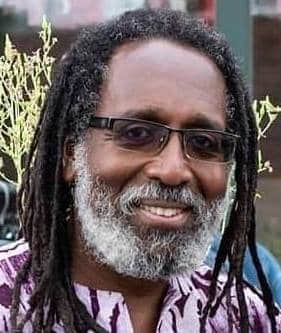
Malik Yakini,
Co Founder and Executive Director, Detroit Black Community Food Security Network
Malik Kenyatta Yakini is co-founder and Executive Director of the Detroit Black Community Food Security Network (DBCFSN). DBCFSN operates the seven-acre D-Town Farm and is spearheading the opening of, the Detroit Food Commons, in Detroit’s North End that will house the Detroit People’s Food Co-op. He serves as a board member of the co-op. Yakini, a longtime Pan-Africanist, views the work of DBCFSN as part of the larger movement for building power, self-determination, and justice for African people. He is adamantly opposed to the systems of white supremacy, capitalism and patriarchy. He has an intense interest in contributing to the development of an international Black Food Sovereignty movement that embraces Black communities in the Americas, the Caribbean and Africa. He is a co-founder of the National Black Food and Justice Alliance.
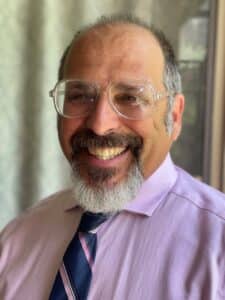
Mark Dorosin,
Associate Professor of Law Florida A&M Law School
Mark Dorosin is an Associate Professor of Law and the Director of Legal Clinics and Field Placements. He has been a civil rights lawyer for over 25 years, working to address the continuing impacts of racial segregation and exclusion, including in housing, employment discrimination, environmental justice, restrictions on political participation, and racial disparities in education. Prior to joining FAMU, Professor Dorosin served as the Managing Attorney of the Lawyers’ Committee for Civil Rights Under Law-North Carolina Regional Office, and before that as co-Director of the Julius L. Chambers Center for Civil Rights. He also led the University of North Carolina (UNC) School of Law Center for Civil Rights for 10 years.
Professor Dorosin’s areas of expertise include civil and constitutional rights, education law, fair housing, and environmental justice. Professor Dorosin received his J.D. from UNC Law School, an M.A.in history from UNC-Greensboro, and a B.A. from Duke University.
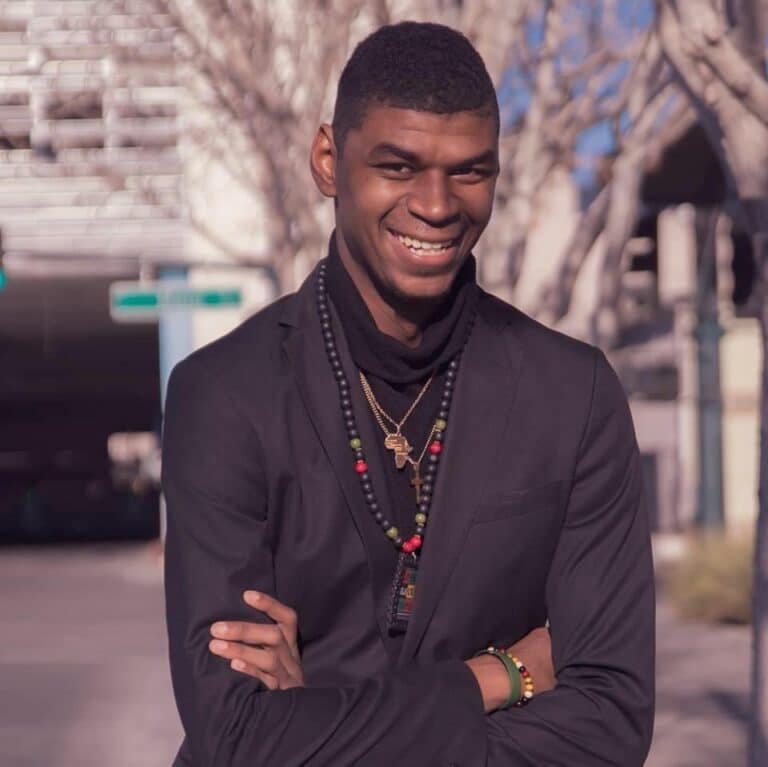
Min. Stretch Sanders,
President and Founder, Stretch for Change Foundation
Minister Stretch Sanders is President and Founder of the Stretch For Change Foundation.
He is also a historian, a revolutionary a Minister, a Community Organizer and he is best known for being the youngest in history to run for Mayor in Las Vegas.
As an empowerment speaker, Spiritual Life Coach and Licensed Minister he lectures and organizes events that are geared towards personal growth, unity and love.
Due to his accomplishments and passion for community service he was honored with February 19th being proclaimed Minister Stretch Sanders Day in the City of Las Vegas.

Omar Freilla,
Cooperative development consultant & co-founder and steering committee member of Collective Diaspora
Omar Freilla is a cooperative development consultant and co-founder and steering committee member of Collective Diaspora, a support network for Black cooperatives and Black-led cooperative support organizations throughout the African diaspora. He is a serial trailblazer, social entrepreneur, and movement builder dedicated to community self-determination and regenerative economies. His work is grounded in his experience growing up in the South Bronx amid fights for community self-determination.
His years at the NYC Environmental Justice Alliance and Sustainable South Bronx led him to cooperatives as a tool for building economies that are just and regenerative. He founded Green Worker Cooperatives, created the first business accelerator for worker cooperatives in the US, and pioneered new approaches to cooperative development. He also co-founded local and national cooperative support organizations: US Federation of Worker Cooperatives; Democracy At Work Institute; and the NYC Network of Worker Cooperatives.
He also contributed to the establishment of the City of New York’s Worker Cooperative Business Development Initiative. He is an Adjunct Lecturer at the City College of New York, serves on the City of NY’s Environmental Justice Advisory Board, NY State’s Just Transition Working Group, and enjoys family time with his two children and partner at home in the Bronx.
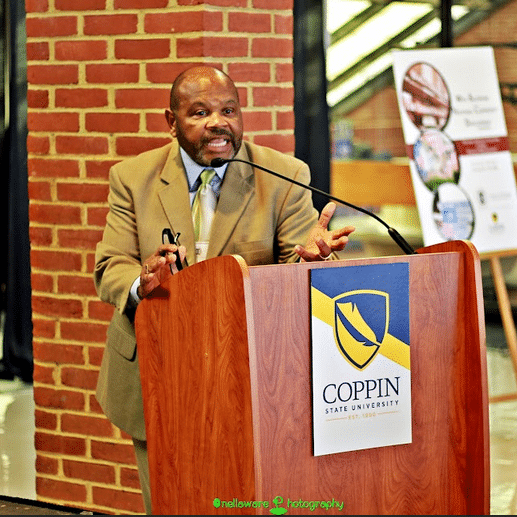
Ron Hantz,
Founder and Executive Director of the Network for Developing Conscious Communities
Ron Hantz has more than thirty-five years of professional experience in community development, his experiences include real estate development, community and economic development, policy advocacy, mortgage financing and community strategy building. He has worked with non-profits and private sector organizations on developing racial equity frameworks centered on community development.
He received his undergraduate degree in Sociology and African American Studies at University of Maryland Baltimore County. He has completed Georgetown Nonprofit Certification Program and has additional graduate course in city planning and holds a Master Certificate Graduate of the Johnnie Coleman Institute, where he received his formal training in metaphysical practices.
As Founder and Executive Director of the Network for Developing Conscious Communities, he has been instrumental in advocating a new community development paradigm based on “conscious community development” He is former Adjunct Professor, Africana Studies Department, University Maryland Baltimore County.
In 2014, Ron founded the Network for Developing Conscious Communities, where he now serves as Executive Director. He leads the organization’s efforts on advocacy and building a sustainable ecosystem for Black governed community development organizations. Under his leadership, NDCC has emerged as a grass roots voice on promoting the use of principle-based practices to regenerate under-resourced Black communities.
He has developed over 140 units of multi and single-family housing in Maryland, Virginia and District of Columbia; securing over $30 million in government, foundation and private financing. In addition, Ron has worked in the private sector as a mortgage loan officer, originating residential and commercial loans in Washington, DC, Virginia, and Maryland, amassing over $269 million in government and private equity mortgages. He has provided consulting services on assisting community development corporations and faith-based organizations with neighborhood planning, organizational development and applying for Internal Revenue Tax Exempt status.
He believes that in order to develop sustainable communities, there must be a conscious effort to raise the consciousness and connectivity of local stakeholders. He sees his life purpose as elevating the Black consciousness in community development.
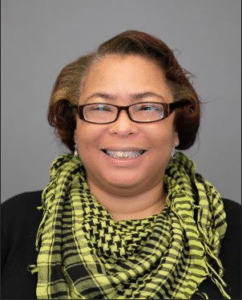
Shelley Miller,
Director of New Ownership Opportunities and Outreach, ICA Group
25+ years of diverse experience in business, law, nonprofit administration, and education, Shelley leads ICA’s New Ownership Opportunity team. She is a former small business owner who shares the benefits of employee ownership and cooperative ownership models with other business owners. Shelley joined ICA in August 2019 and has a particular focus on its New York City Council supported Worker Cooperative Business Development Initiative work.
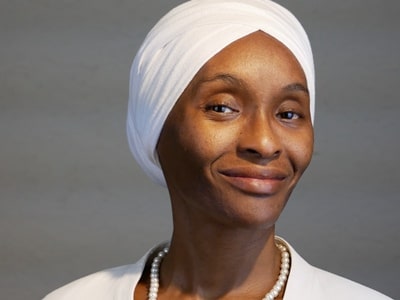
Tamah Yisrael,
Chief Solutions Officer at TMH Financial Services LLC
Tamah Yisrael is Chief Solutions Officer of TMH Financial Services LLC and a member of Resolve Financial Cooperative. She established her firm in October 2018 to provide business development, bookkeeping and management services to small businesses, nonprofits, and social impact enterprises in the Greater New Orleans Area. She currently provides Outsourced Executive Director Services to Builders of the Highway Foundation (BOTH Foundation) a national nonprofit. Under her leadership BOTH Foundation has merged the Temple of Brothers of Sisters of Goodwill and Neo Jazz School of Music under its umbrella and has developed educational community centers in New Orleans, Miami, and Orlando. She is also a partner of Yisrael Records Inc. an independent record label and producer of jazz and contemporary music who provides management of local artist such as the Yisrael Trio.
Her community advocacy efforts are focused on cultural awareness, social justice, and access to healthy foods. In her role as President of the board of directors for the New Orleans Food Coop, she was able bridge the connection in all three of these sectors. She is currently organizing a cooperative movement and is a project officer of Cooperation New Orleans Loan Fund. Additionally, she has been recognized by the Metro Birmingham Branch of the NAACP in its Annual Salute to Outstanding African American for her contributions to culture and youth of the community. She is a graduate of the Foundation for Louisiana’s TOGETHER Initiative LEAD Community Training Program, UNO’s Community Development Finance program, Cooperation Works’ Art & Science of Cooperative Development. She continues to serve community on various committees and working groups to build a more equitable society.
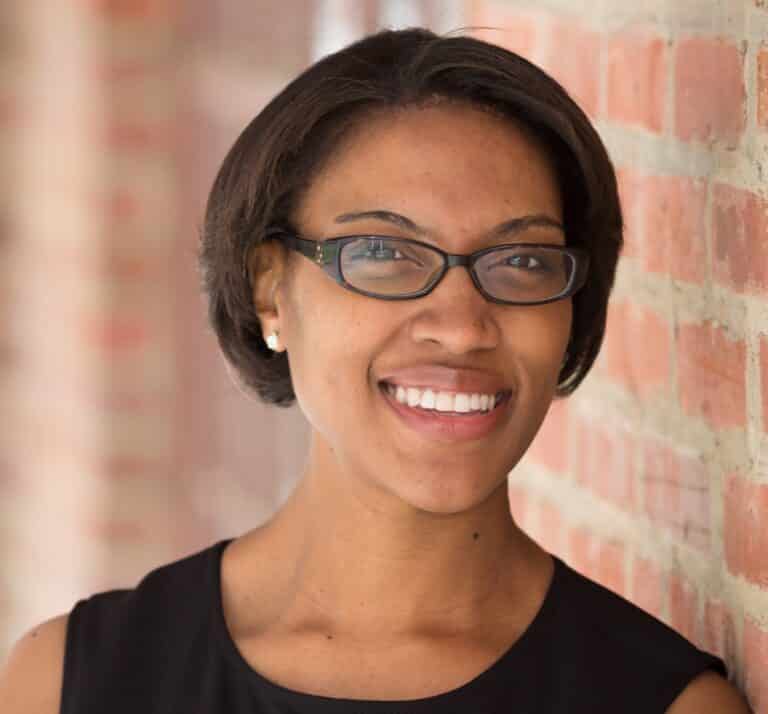
Teia Evans,
Project Director, NCBA CLUSA
Teia Evans has been working with nonprofits for the majority of her career, with a particular passion for youth development. She has been involved in the cooperative ecosystem since 2015 and currently provides technical assistance and training to help develop cooperative economies across the country. Ms. Evans is a proud graduate of Morgan State University. She earned her Juris Doctorate and Master of Business Administration degrees at North Carolina Central University.
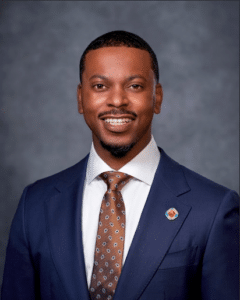
William McCurdy II,
Commissioner Clark County, Nevada
William McCurdy grew up in a family surrounded by a legacy of community activism, but after dropping out of school to support his family at an early age, his life could have gone in a very different direction. However, William instead worked to get into the College of Southern Nevada where he earned an Associate’s degree and became Student Body President. He eventually joined the Service Employees International Union, Local 1107 (SEIU) as an organizer, working his way up to become the state Political Director.
Then, at 27 years old, he was elected Chairman of the Nevada State Democratic Party, the party’s first African American Chair and the youngest Chair in modern party history. As Chair of the party he went on to become the Vice President of western states while serving as a member of the Association of State Democratic Committees. Passionate about education, William earned his Bachelor’s degree from the University of Nevada Las Vegas and is on track to law school, all while serving as an active State Assemblyman, board member of several nonprofit and advocacy organizations, and was elected to the Clark County Commission in 2020. He is the proud father of two sons.

Yehudit Toure,
Member, Parable of the Sower Community Cooperative
Yehudit is one of the first members of the Parable of the Sower Community Cooperative. She has been working directly alongside its members with planning, facilitating meetings, and helping to host events. When not in California with the organization, Yehudit is a culinary student in the Midwest going for her CEC as part of the certificate program.
Accommodation
Sponsors

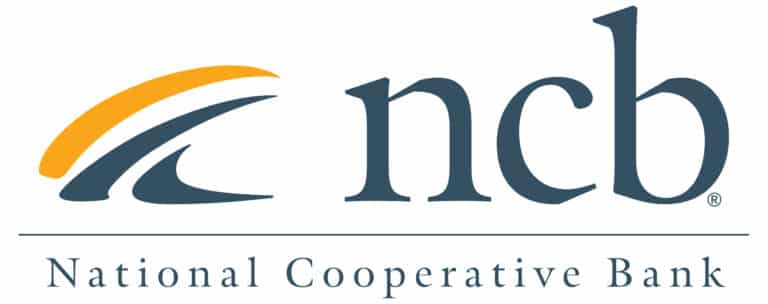
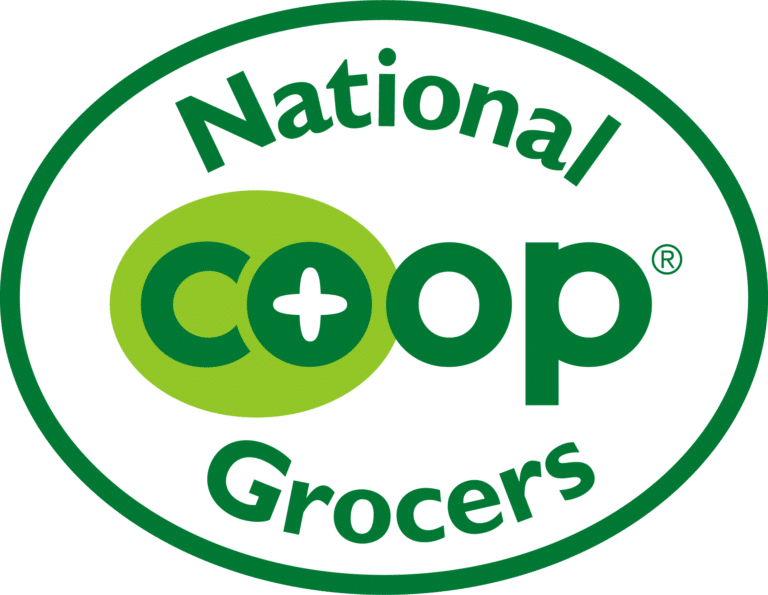

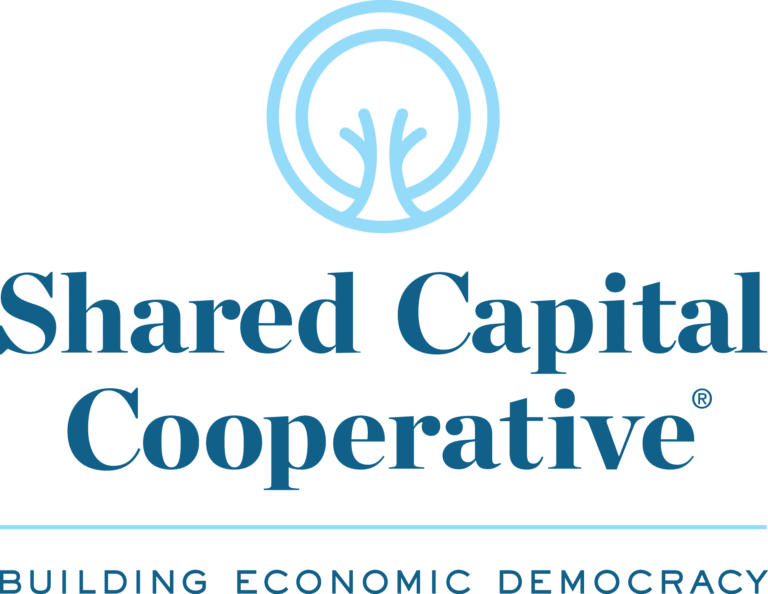

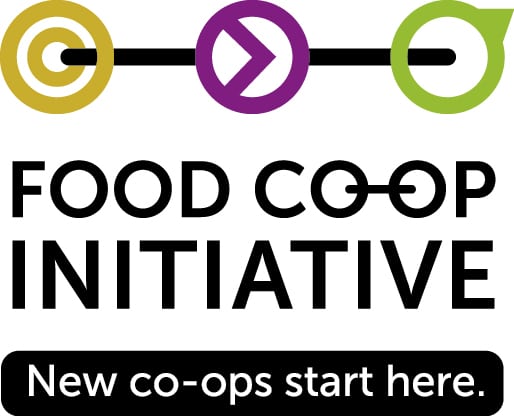
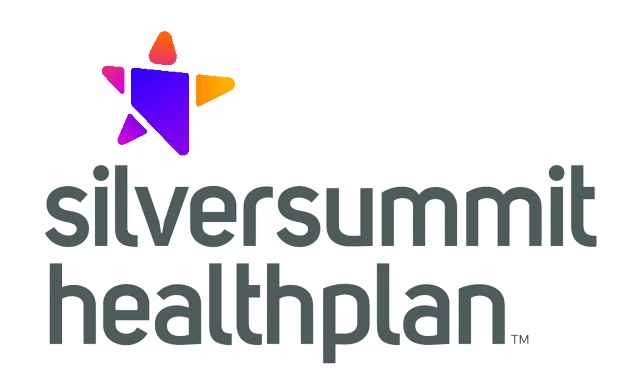
Youth Futures of Cooperatives
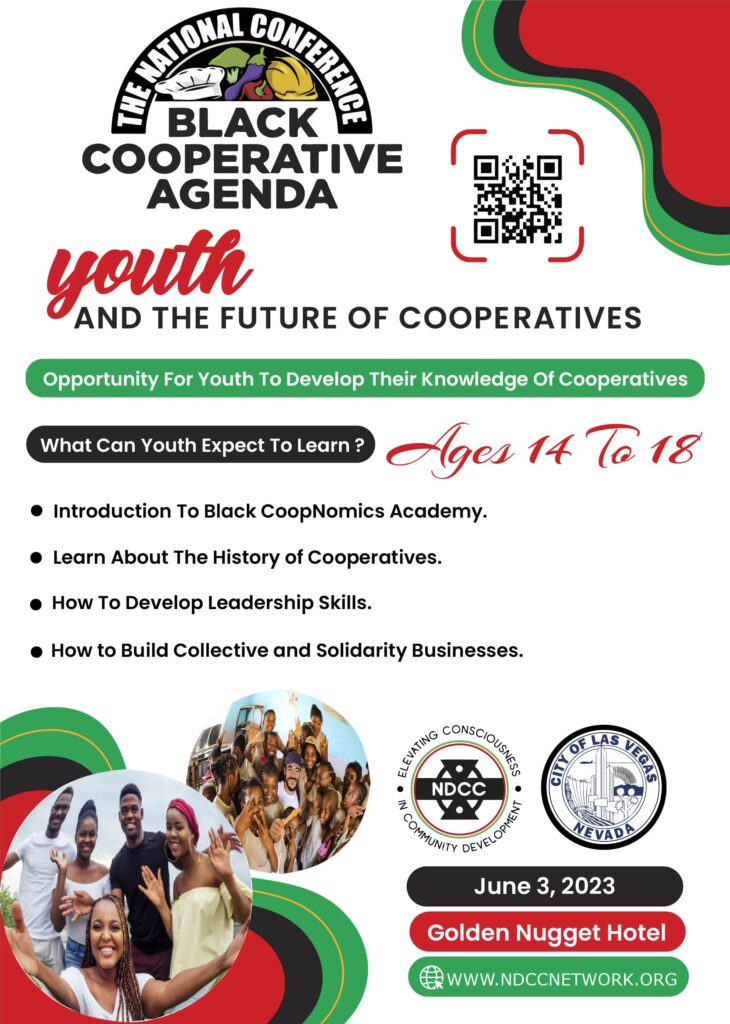
Sponsors





Golden Nugget Hotel
Las Vegas, Nevada
Network for Developing Conscious Communities has booked a limited number of rooms from Thursday, June 1, 2023 through
Sunday, June 04, 2023.
To register for rooms call 1-800-331-5731 and mention the following group code: GSNFDCC
It is essential for you to mention the code to ensure the group rates and other amenities are applied to reservations. The web link below has been established for those guests that would like to book online:
2022 Conference Images
2023 Conference Images
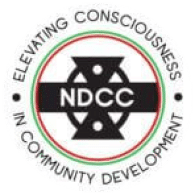
Contact
410-961-8697 (Direct)
202-379-3888 (Fax)
DC 20019
